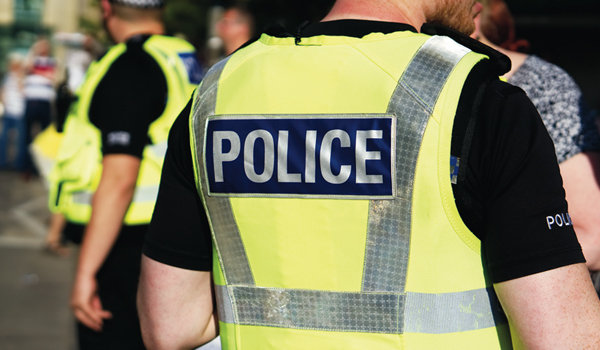New public and personal safety training introduced
New public and personal safety training introduced by the College of Policing is equipping officers to de-escalate conflict without using force.
The college’s new national curriculum for safety training was a commitment made in the officer and staff safety review (2020).
The review, together with the Angiolini Review (2017) underlined the “serious risk” that use-of-force incidents can pose to public and police safety.
“We released new conflict management guidance highlighting that police officers and staff should have the skills to de-escalate conflict, where appropriate, without using force,” the college said.
The scenario-based public and personal safety training uses realistic situations that officers are likely to deal with on a daily basis such as:
- Stop and search;
- Dealing with a vulnerable person; and
- Working in custody.
The results of a year-long pilot in Avon and Somerset, show a nine per cent reduction in the use of force by officers who took part in the new training. The pilot highlights that Avon and Somerset Constabulary alone would have recorded around 1,200 fewer use-of-force incidents over a full 12 months (an 11 per cent reduction).
If the training has the same impact across the country, there could be tens of thousands fewer conflict situations successfully managed without officers needing to use force.
“Our evaluation shows the training is equipping officers to deal more effectively with the challenges they face,” the college said. “While there is a greater focus on communication and de-escalation techniques, the pilot study found no evidence of officers being less likely to physically intervene where there was risk to their or the public’s safety.
“There are many examples of police officers bravely facing dangerous situations, like the recent violent disorder that has broken out in parts of England. It is more vital than ever to provide our police officers with training that is relevant and gives them the skills and confidence they need to face these types of challenges.”
The evaluation showed 92 per cent of officers were ‘very satisfied’ or ‘satisfied’ with this training, while 89 per cent said the course was relevant to the demands of their job.
The new two-day scenario-based public and personal safety training refresher course was delivered to more than 2,000 officers in Avon and Somerset Constabulary as a pilot in place of an old model of training based on repetitive exercises.
After training there were significant reductions in:
- The overall use-of-force;
- Officers going ‘hands-on’; and
- The number of people injured as result of officers having used force.
Officers reported being significantly more confident in using almost all use-of-force tactics after training. Injuries to officers during use-of-force incidents did not increase. Officers were also significantly and substantially more satisfied with the new course than they were with previous safety training.
The perceived likelihood of being assaulted and worry about being assaulted did not change significantly, however.
Overall, this pattern of results suggests the new scenario-based refresher course has been effective in reducing force and improving public safety but without compromising officer safety, he college said.
The college has also published the first set of national standards in this area of police training. The new public and personal safety training guidance will support forces to deliver this training to a consistently high standard. This includes every officer receiving at least 12 hours of training in this area per year.


